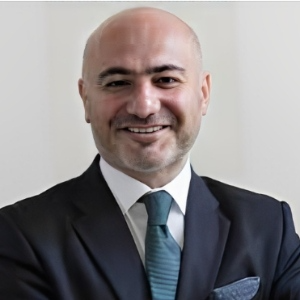Title : Targets for the prevention of comorbidity of cardiovascular and oncological diseases
Abstract:
In the first decades of the 21st century, chronic noncommunicable diseases (CNCDs) remain the leading cause of disability and death among adults in the developed world. Their total share in mortality is about 77%. Malignant oncological diseases, along with cardiovascular diseases (CVD) associated with atherosclerosis, are among the top three causes of death in the adult population. According to the forecast of WHO experts, in the next 5-10 years, CVD will account for 26.5% in the structure of mortality, and 8.5% for oncological diseases of various localization.
Traditional cardiovascular risk factors (smoking, harmful alcohol consumption, malnutrition, sedentary lifestyle, obesity, high blood pressure, high blood glucose and high blood cholesterol) play an important role in the development of oncological diseases of various localization. According to the US National Registry, patients (n=1582) with breast, prostate, uterine, and colorectal cancers had multiple RFs, such as smoking, overweight, sedentary lifestyle, hypercholesterolemia, arterial hypertension, and diabetes mellitus.
The comorbidity of somatic diseases among cancer patients is an urgent problem, as it worsens the prognosis of survival and significantly affects the quality of life. At the time of diagnosis of cancer, patients have at least two or three additional chronic diseases. In our cross-sectional cohort study among patients with lung cancer and colon cancer, the most common disease was essential hypertension (AH). Among patients with cancer of both localizations, its frequency was comparable, 76% and 75.9%, respectively. Among patients with bowel cancer, CHD was detected in 32% of cases, and in the group with lung cancer in 34.5% of cases. The comorbidity of somatic diseases is also associated with the localization of the malignant tumor. Type 2 diabetes in the group of people with lung cancer was diagnosed in 13.8% of cases, while in the group of people with bowel cancer it occurred twice as often, in 26% of cases. In the group of people with lung cancer, stomach diseases were detected in almost every second patient (44.8%), among people with bowel cancer this figure reached 70% of cases (p=0.034). Concomitant COPD in patients with lung cancer was diagnosed in 62% of cases, and in the group of patients with bowel cancer it was 3.5 times less and amounted to 18% (p<0.001).
Thus, it is important to carry out primary prevention, in particular lifestyle changes, which can significantly reduce both the incidence and the risk of developing complications of comorbid conditions. Secondary prevention should not be limited to the fight against cardiotoxicity, a wide range of measures requires the development of international recommendations, taking into account the severity of diseases, age and prognosis of complications.



